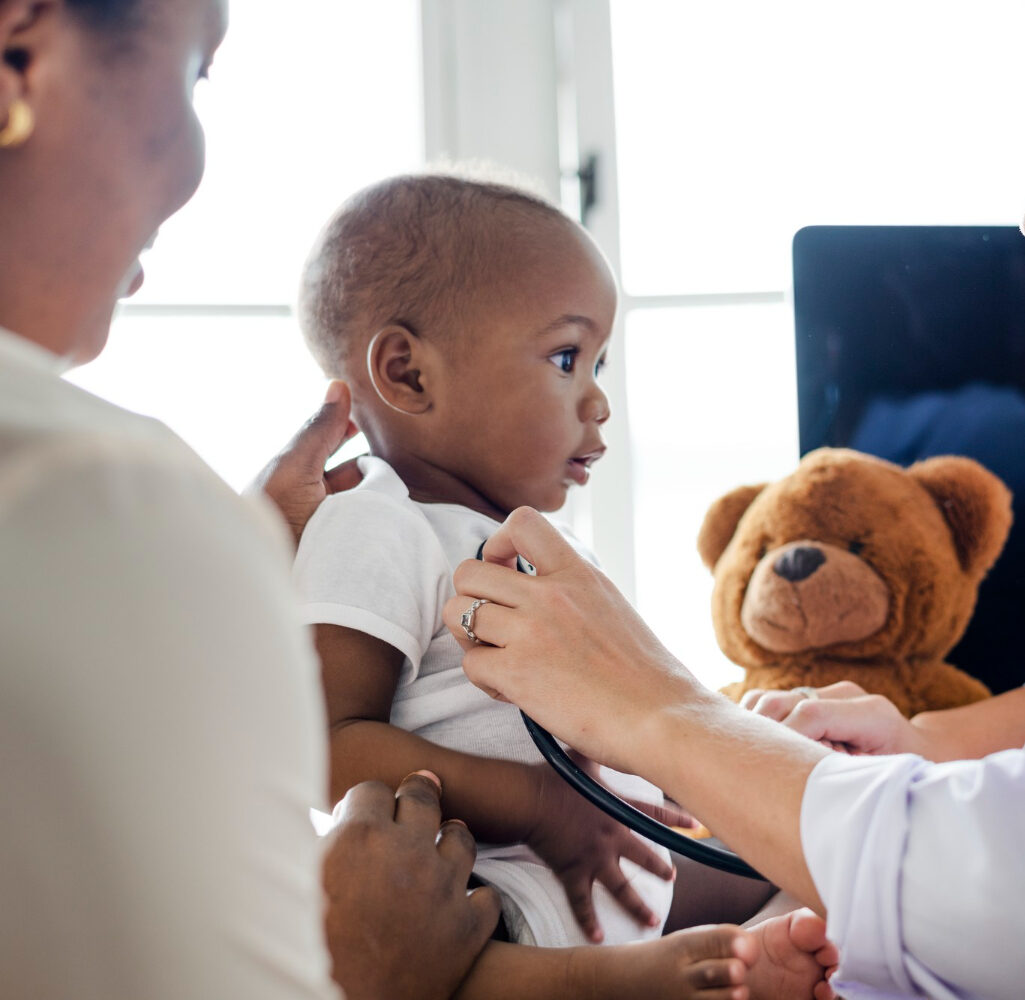Is It Pneumonia to My Child?
DR VINIT MEHTA | MD PEDAITRICIAN
Understanding Pneumonia in Children
Pneumonia is a common but serious respiratory infection that affects children of all ages. It is often preceded by several days of upper respiratory symptoms such as rhinitis and cough. Identifying pneumonia early and seeking timely medical care can prevent severe complications.


Common Symptoms of Pneumonia to Child
- Fever: Usually present, but the severity varies between viral and bacterial pneumonia.
- Tachypnea (Rapid Breathing): The most consistent clinical manifestation.
- Labored Breathing: Includes nasal flaring, use of accessory muscles, and retractions.
- Cough: Persistent and worsening over time.
- Chest Pain: Often present in older children with bacterial pneumonia.
- Fatigue and Lethargy: More common in severe cases.
- Cyanosis (Bluish Skin Coloration): Seen in severe infections due to poor oxygenation.
- Wheezing and Crackles: Noted during chest examination.
Causes of Pneumonia by Age Group to Child
The type of bacteria or virus causing pneumonia often depends on the child’s age.
| Age Group | Common Pathogens |
|---|---|
| Neonates (<3 weeks) | Group B Streptococcus, Escherichia coli, Streptococcus pneumoniae, Haemophilus influenzae |
| 3 weeks – 3 months | Respiratory syncytial virus (RSV), S. pneumoniae, H. influenzae, Chlamydia trachomatis |
| 4 months – 4 years | RSV, S. pneumoniae, H. influenzae, Mycoplasma pneumoniae, Group A Streptococcus |
| ≥5 years | M. pneumoniae, S. pneumoniae, Chlamydophila pneumoniae, H. influenzae, Influenza viruses |
Diagnosis of Pneumonia
A proper diagnosis is crucial for appropriate treatment. The following evaluations are commonly performed:
- Clinical Examination: Assessment of breathing difficulty, chest sounds, and symptoms.
- Chest X-ray: Helps confirm pneumonia and its severity.
- Blood Tests: Detects signs of bacterial infection.
- Pulse Oximetry: Measures oxygen levels in the blood.
- Sputum Culture: Identifies bacterial causes in older children who can produce sputum.
Treatment of Pneumonia in Children
1. Home-Based Care for Mild Pneumonia
- Ensure the child gets adequate rest.
- Give plenty of fluids to prevent dehydration.
- Use fever reducers (like paracetamol) if necessary.
- Monitor breathing and alert a doctor if symptoms worsen.
2. Medical Treatment
- Viral Pneumonia: Supportive care (rest, hydration, and fever management) as antibiotics are not effective.
- Bacterial Pneumonia: Requires antibiotics like amoxicillin or azithromycin.
- Hospitalization: Needed in severe cases where oxygen therapy or IV fluids are required.
When to Seek Emergency Care?
- Very high fever (>102°F or 39°C)
- Severe difficulty in breathing
- Bluish skin or lips (cyanosis)
- Unresponsiveness or extreme drowsiness
- Persistent vomiting and inability to take fluids
- Symptoms worsening despite treatment
Prevention of Pneumonia in Children
- Vaccination: The most effective way to prevent pneumonia.
- Prevenar 13 / Synflorix: Prevents S. pneumoniae-related infections.
- Hib Vaccine: Protects against Haemophilus influenzae type B infections.
- Influenza Vaccine: Reduces the risk of viral pneumonia.
- Measles Vaccine: Prevents pneumonia as a complication of measles.
- Good Hygiene Practices
- Handwashing to reduce infections.
- Avoiding exposure to smoke and pollution.
- Encouraging breastfeeding for immunity boost in infants.
Related FAQs
Q: Can my child recover from pneumonia at home?
A: Yes, mild cases can be treated at home with proper rest, hydration, and prescribed medications. However, seek medical help if symptoms worsen.
Q: How long does pneumonia take to heal?
A: Viral pneumonia takes 1-2 weeks to resolve, whereas bacterial pneumonia may take longer, depending on severity.
Q: Should I keep my child isolated?
A: Yes, keep them away from other children until fever subsides to prevent the spread of infection.
Get Expert Care for Pneumonia in Children
For a consultation with Dr. Vinit Mehta, MD Pediatrician, contact us:
- Online Consultation via WhatsApp: ₹299
- Call Now: Click Here to Call
- Visit Our Clinic: Aashrey Child Clinic, Vadodara
Internal Link
Approach to Child with Pneumonia
